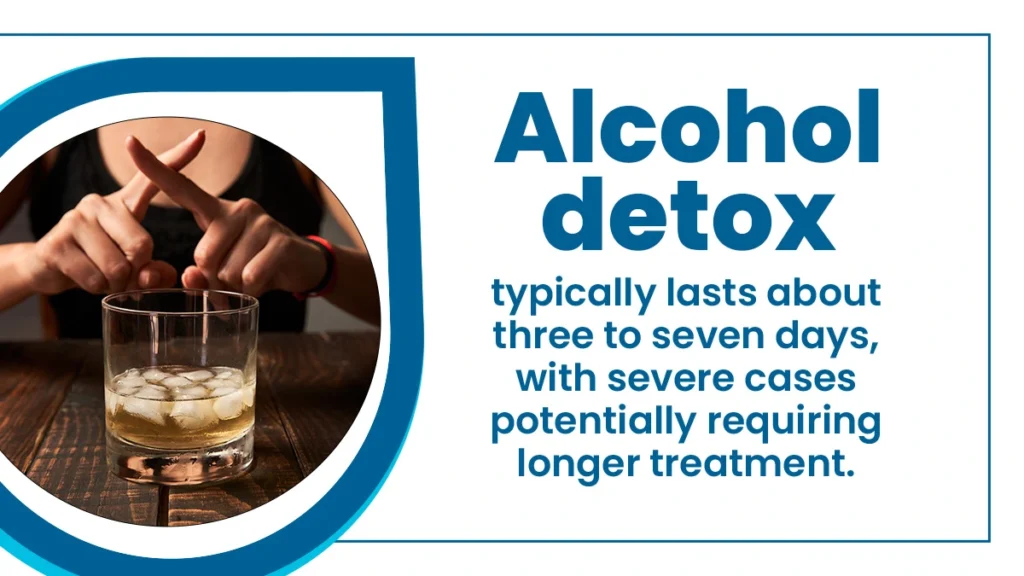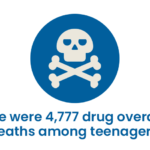Alcohol detoxification, a critical step towards recovery, involves ridding the body of alcohol while managing withdrawal symptoms. Typically lasting from five to seven days, detox length is influenced by several factors.

Understanding the nuanced timeframe for alcohol detox underscores the importance of tailored care and reinforces the significance of seeking expert guidance on the journey toward sobriety.
Key Takeaways
Abruptly quitting alcohol without proper medical guidance can lead to life-threatening withdrawal symptoms.
- Alcohol detox is the initial phase of recovery, involving removing alcohol from the body to manage withdrawal symptoms and pave the way for further treatment.
- Alcohol detox duration varies widely based on individual factors but typically lasts about three to seven days, with severe cases potentially requiring longer treatment.
- Medical supervision is crucial during alcohol detox to manage withdrawal symptoms and ensure safety.
Contact The Haven Detox-South Florida at (561) 328-8627 for personalized medical care to achieve long-term sobriety.
Alcohol Detox Process
Alcohol detoxification, commonly known as alcohol detox, is typically the first step in treating alcohol dependence or alcohol use disorder (AUD).
Here’s an overview of the alcohol detox process:
Evaluation
Alcohol detox begins with thoroughly evaluating the individual’s physical and psychological health. Medical professionals assess the extent of alcohol dependence, overall health status, and any co-occurring conditions.
This evaluation helps create a personalized detox plan tailored to the individual’s needs, ensuring their safety and well-being.
Detoxification
Detoxification is a critical phase to eliminate alcohol from the body while managing withdrawal symptoms. Medical supervision is paramount during this stage to monitor vital signs and provide necessary medications to ease discomfort.
Withdrawal symptoms can range from mild anxiety and nausea to severe seizures or delirium tremens. Gradual tapering of medication-assisted detox may mitigate risks and enhance the chances of a successful detox.
Rehabilitation
Following detox, the rehabilitation phase addresses the underlying causes of substance use disorder and provides the necessary tools for sustained recovery. This stage often involves various therapeutic interventions, such as individual and group counseling, cognitive-behavioral therapy, and holistic approaches like mindfulness and art therapy.
Rehab helps individuals develop coping strategies, build healthier habits, and reestablish positive relationships.
Timeline of Alcohol Detox
Alcohol detox involves stages marked by distinct withdrawal symptoms. Understanding the timeline of alcohol detox can provide valuable insights into the challenges individuals may face during this process.
Mild Withdrawal Symptoms: Upon cessation of alcohol consumption, individuals may experience mild withdrawal symptoms within the first 24 hours. These symptoms often include tremors, anxiety, irritability, and nausea. While these effects may be uncomfortable, they generally do not pose immediate medical risks.
However, medical supervision is still recommended to ensure the safety and comfort of the individual.
Moderate Withdrawal Symptoms: Around the third day of alcohol detox, individuals may encounter more pronounced withdrawal symptoms. These can include increased heart rate, elevated blood pressure, sweating, and disturbances in sleep patterns.
Delirium tremens (DTs), a severe form of withdrawal characterized by hallucinations, confusion, and seizures, can also manifest at this stage, although it is more common in heavy, long-term drinkers.
Medical intervention becomes increasingly crucial during this phase to manage potentially severe symptoms.
Severe Withdrawal Symptoms: As the first week unfolds, severe withdrawal symptoms may emerge. These can encompass intense cravings for alcohol, profound mood swings, pronounced anxiety and depression, and physical symptoms such as vomiting and diarrhea.
Medical supervision and support are highly recommended during this period, as complications like dehydration and electrolyte imbalances can arise.
Post-Acute Withdrawal Symptoms: The effects of alcohol detox do not conclude after the initial acute withdrawal phase. Post-acute withdrawal symptoms (PAWS) can persist for weeks, months, or even years. These symptoms vary widely among individuals but often include mood disturbances, cognitive deficits, and sleep disturbances.
PAWS can pose challenges to maintaining sobriety, highlighting the importance of ongoing support and therapy.
Factors Influencing Alcohol Detox Duration
The duration of alcohol abuse detoxification can vary significantly from person to person and is influenced by various factors.
Here are some key factors that can influence the duration of alcohol detox:
The Severity of Alcohol Dependence
The more severe the alcohol dependence, the longer it may take the body to adjust and detoxify. People with a long history of binge drinking or chronic alcohol use may experience a more prolonged detox period.
Amount and Frequency of Alcohol Consumption
Individuals who consume more alcohol more frequently will likely experience a longer detox period. Heavy drinkers may have built up a higher level of alcohol tolerance, which can impact the duration of withdrawal symptoms.
Duration of Alcohol Use
How long a person has been drinking heavily can affect the detox timeline. Long-term alcohol use can lead to physical and neurological changes that take time to reverse.
Age and Gender
Age and gender can affect how the body processes alcohol and detoxifies it. Younger individuals might have a more efficient detox process, while older individuals might take longer due to potential complications associated with age.
Physical Health
The overall physical health of an individual can impact detox duration. Patients with underlying medical conditions may require more time to detox safely, as their bodies might need extra time to recover.
Co-Occurring Mental Health Disorders
Suppose an individual has co-occurring mental health disorders (such as depression, anxiety, or bipolar disorder). The detox process may be more complicated and extended as the alcohol and mental health issues must be addressed.
Genetics
Genetic factors can influence how an individual metabolizes alcohol and experiences withdrawal symptoms. Some people may be more predisposed to experiencing severe withdrawal symptoms, which can impact the detox duration.
Nutrition and Hydration
Proper nutrition and hydration can affect how efficiently the body detoxifies. Malnutrition and dehydration can exacerbate serious symptoms and prolong the detox process.
Medical Supervision and Treatment
The type of medical supervision and treatment received during detox can significantly impact the duration. Medically supervised detox programs can help manage withdrawal symptoms and complications, potentially shortening the detox timeline.
Medication-Assisted Treatment (MAT)
Medications to manage withdrawal symptoms, such as benzodiazepines or other medications, can impact detox duration. MAT can help alleviate discomfort and potentially shorten the detox process.
Frequently Asked Questions (FAQ)
How long does it take to reset your body from alcohol?
The time it takes for your body to reset from alcohol varies. Generally, it takes one to two hours for the body to metabolize one standard drink. However, it can take several days to a week for the body to fully recover from the effects of alcohol addiction, including restoring hydration levels, liver function, and overall well-being.
Regular heavy alcohol intake can lead to longer-lasting health issues and may require more extended recovery periods.
What happens after three days of no alcohol?
After three days of no alcohol, you may experience improved sleep, increased energy levels, and reduced inflammation. Your liver begins to repair itself, aiding in detoxification. However, alcohol withdrawal symptoms can still be present, especially for heavy drinkers.
It’s important to note that the timeline for recovery varies depending on individual factors and the extent of alcohol consumption. If you have concerns about quitting alcohol, consult a healthcare professional.
What is the typical duration of alcohol detox?
The typical duration of alcohol detox varies depending on factors such as the individual’s level of alcohol dependence and overall health. Mild to moderate cases may take around three to seven days. Severe cases might require longer, up to one to two weeks or more.
In addition, it’s crucial to undergo detox under doctors’ supervision, as withdrawal symptoms can be dangerous. A healthcare professional can provide personalized guidance and support throughout the process.
Rediscover Yourself With The Haven Detox-South Florida
Embark on your journey to healing at The Haven Detox-South Florida. Our comprehensive detox program is designed to liberate your body from alcohol’s grip under the vigilant care of experienced medical professionals, ensuring your safety throughout the process. Our residential treatment facility provides continuous support for your recovery, fostering a nurturing environment for your healing process.
In addition, our specialized SMART Recovery approach equips you with vital coping mechanisms to triumph over alcohol cravings, fostering resilience and empowerment.
Take the first step to lasting recovery. Contact us at (561) 328-8627 today and embrace a healthier future.











